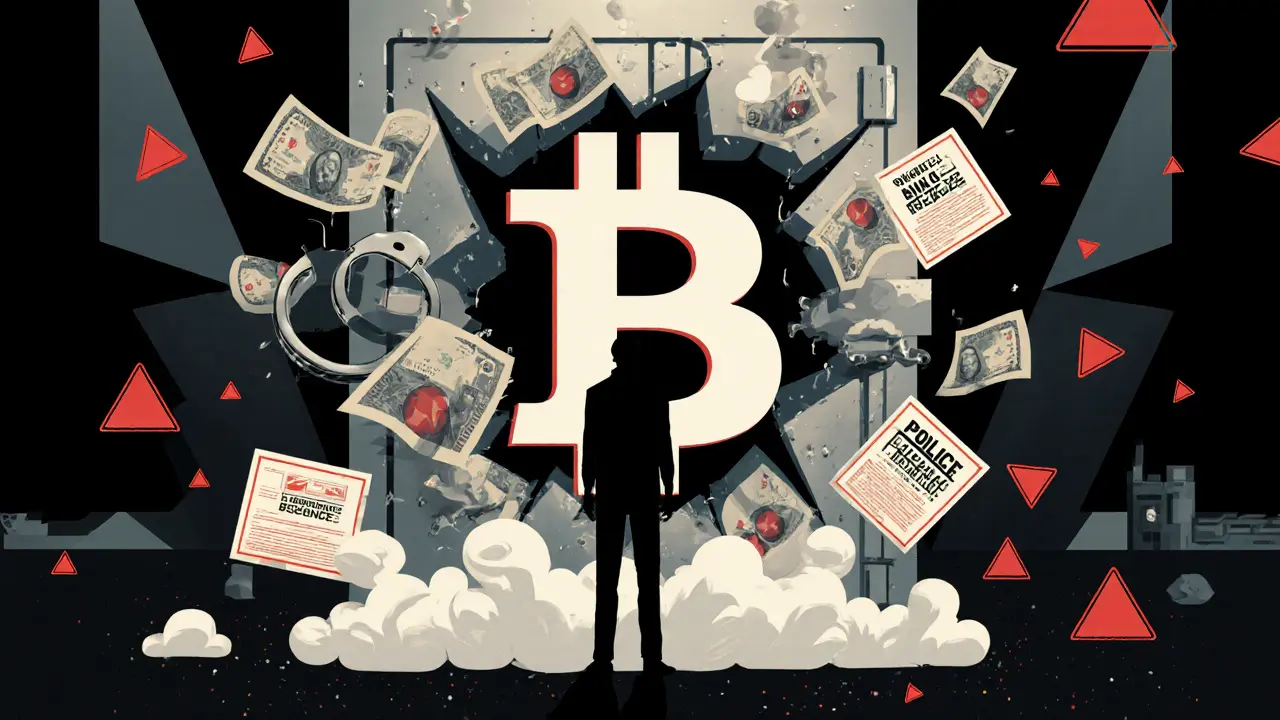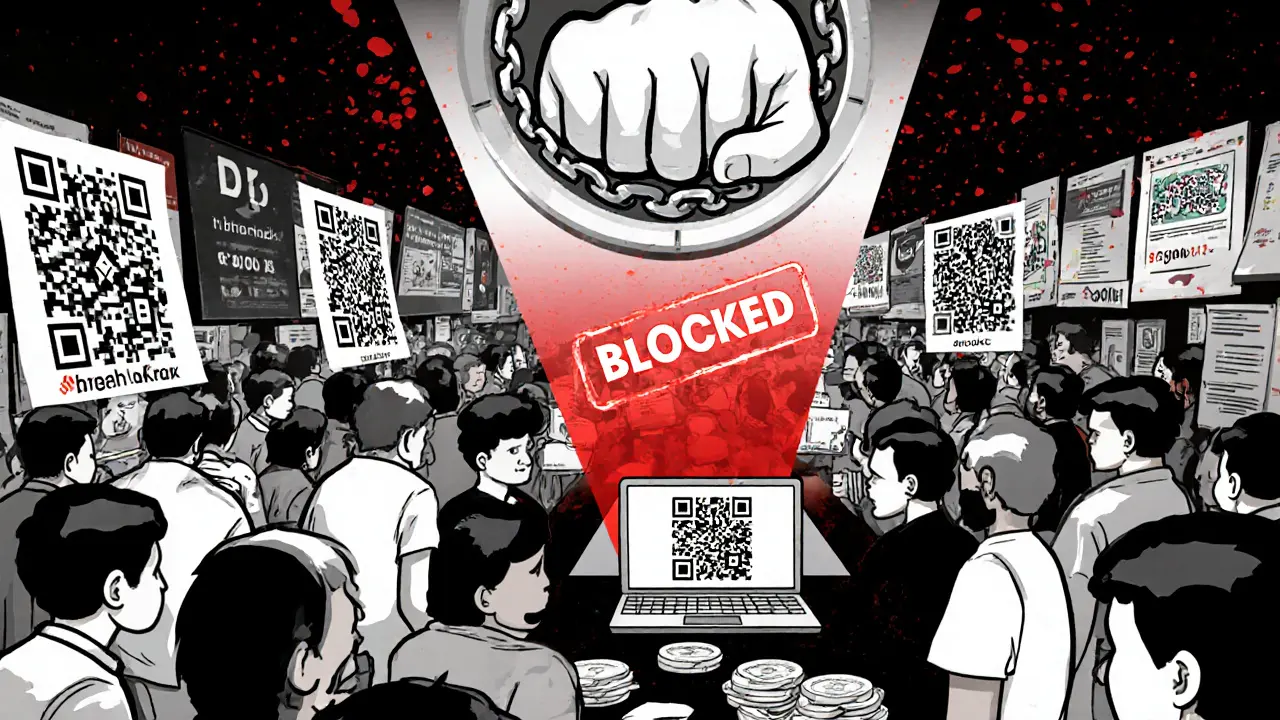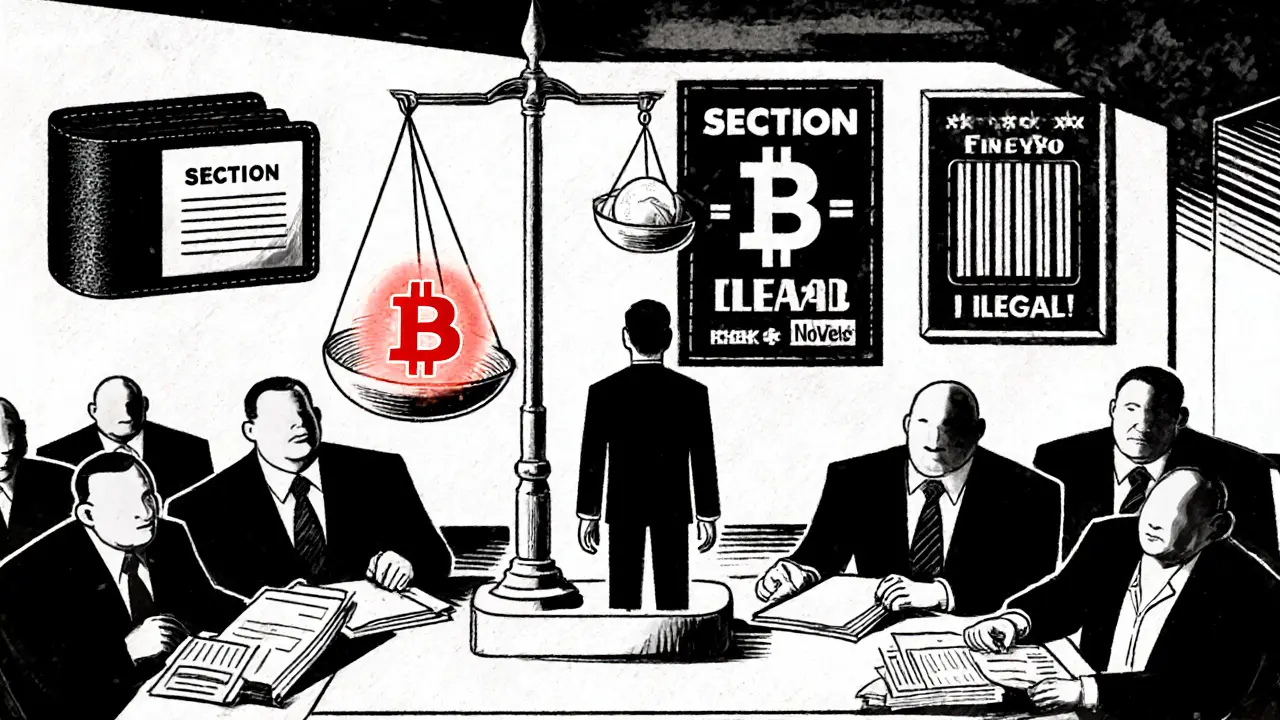Crypto Ban in Bangladesh: Legal Consequences for Bitcoin Trading
 Aug, 20 2025
Aug, 20 2025
Bangladesh Crypto Trading Risk Calculator
Risk Assessment
This calculator estimates potential legal consequences based on information from Bangladesh Bank regulations and enforcement actions. Actual outcomes may vary based on individual circumstances.
Estimated Legal Consequences
Potential Jail Time
Fines
Tax Implications
Buying or selling Bitcoin in Bangladesh isn’t just risky-it’s legally dangerous. Even though you won’t find a law that says "owning Bitcoin is a crime," the moment you trade it, you step into a legal gray zone where the government can throw you in jail. This isn’t theoretical. In 2023, a Dhaka trader lost 127 Bitcoin-worth over $12 million at the time-after authorities seized it. In 2022, 14 people were arrested for running a crypto exchange. And in 2024, seven university students were investigated for moving $85,000 through peer-to-peer networks. Bitcoin trading in Bangladesh isn’t illegal on paper, but it’s punished as if it were.
How the Ban Actually Works
The Bangladesh Bank didn’t pass a law banning Bitcoin. Instead, they used existing rules to crush it. Back in 2016, they issued a circular saying using cryptocurrencies violates the Foreign Exchange Regulation Act of 1947 and the Money Laundering Prevention Act of 2012. That’s it. No new law. No parliamentary vote. Just a warning that turned into enforcement.
Here’s the catch: the law doesn’t say "owning Bitcoin is illegal." But it does say that any money movement tied to "illegal activities"-which the central bank defines as crypto trading-is punishable. So if you buy Bitcoin with Taka, sell it for dollars, or even send it to a friend, you’re now under suspicion of violating foreign exchange rules or laundering money. And those laws carry prison time.
Section 6 of the Money Laundering Prevention Act says you can get 1 to 10 years in jail and a fine between 10,000 and 1,000,000 Bangladeshi Taka (roughly $85 to $8,500 USD). That’s not a warning. That’s a criminal penalty. And it’s being used.
Who Gets Caught-and How
Authorities aren’t hunting random users. They’re tracking patterns. The Bangladesh Automated Clearing House (BACH) watches international card transactions. If you use your Visa or Mastercard to buy USDT on Binance, that transaction gets flagged. The Bangladesh Financial Intelligence Unit (BFIU) then investigates.
They also monitor mobile money apps. bKash and Nagad, used by over 100 million Bangladeshis, are required to report suspicious transfers. In 2024 alone, these platforms blocked 2,843 accounts linked to crypto activity. Banks freeze accounts without warning. One survey of 350 traders found that 68% had at least one bank account frozen because the bank spotted crypto-related payments.
Even peer-to-peer trades aren’t safe. Local agents-people who buy your Taka and send you Bitcoin-are common. But they’re also targets. In June 2024, a trader named Sohel Rana vanished after collecting over $350,000 in cash from 23 clients. No one was arrested. The victims lost everything.
The Gray Zone: Ownership vs. Trading
Here’s where it gets messy. In November 2021, the Bangladesh Bank told the Criminal Investigation Department (CID) in writing: "Trading, owning cryptocurrency is not illegal." That document, Case No. 1147/2021, exists. But the bank never made it public. They kept warning the media that crypto is "strictly prohibited."
Legal experts call this a "dangerous limbo." You might not be breaking the law by holding Bitcoin. But if you trade it-even once-you’re now subject to the Money Laundering Act. And the police don’t care about your intent. If they find a wallet with $10,000 in Bitcoin, they assume you’re laundering money.
There’s no legal defense for "I didn’t know." Ignorance doesn’t protect you. The central bank’s warnings are everywhere: on their website, in news releases, even in bank branches. So the courts assume you knew.

How People Still Trade
Despite the risks, an estimated 500,000 to 700,000 Bangladeshis still trade crypto. They use workarounds. VPNs to access LocalBitcoins. Binance and KuCoin apps downloaded from third-party APKs. And most commonly-local agents.
These agents operate like underground banks. You give them cash. They send you USDT on your phone. They charge 3% to 5% fees. It’s fast. It’s convenient. And it’s extremely risky. You’re trusting a stranger with your life savings. And if the police raid their home? You lose everything.
Even the app stores aren’t safe. Google Play still allows Binance and KuCoin in Bangladesh. But downloading them doesn’t mean they’re legal. It just means the app store hasn’t removed them yet. The government doesn’t block apps-they block bank accounts, arrest people, and seize assets.
Taxes? No One Knows
The National Board of Revenue (NBR) hasn’t created a crypto tax law. But they’re still collecting taxes. Under the Income Tax Ordinance of 1984, they treat crypto profits like regular income. If you make $5,000 trading Bitcoin, they can demand 25% to 30% in taxes.
Here’s the problem: you can’t file a crypto tax return. There’s no form. No system. No guidance. So if you pay taxes, you’re doing it unofficially. If you don’t, you’re risking penalties. Either way, you’re in the crosshairs.
In a February 2025 briefing, NBR Commissioner Md. Moniruzzaman confirmed: "There are no specific crypto tax regulations." But he didn’t say crypto profits are tax-free. That silence is a trap.

Why the Ban Won’t End
Some argue the ban is outdated. Bangladesh gets $21.1 billion in remittances every year. Many workers abroad use crypto to send money home faster and cheaper. But the central bank says crypto threatens monetary control. If people bypass the taka, they can’t manage inflation or interest rates.
Meanwhile, neighboring countries are moving forward. India taxes crypto but lets people trade. Pakistan is exploring Bitcoin reserves. Sri Lanka wrote a regulatory framework. Bangladesh? Finance Minister Abul Hassan Mahmood Ali said in March 2025: "There are no plans to reconsider the cryptocurrency ban."
Even the government’s own blockchain strategy from 2020 supports blockchain tech-but explicitly excludes cryptocurrencies. They want the tech, not the money.
What Happens If You Get Caught
If the police come for you, here’s what you can expect:
- Your phone, laptop, and bank statements are seized.
- Your bank accounts are frozen-sometimes permanently.
- You’re questioned for hours by the CID or BFIU.
- You’re charged under Section 6 of the Money Laundering Act.
- You might be jailed for up to 10 years.
- You’ll pay a fine up to 1,000,000 BDT (about $8,500).
There’s no trial guarantee. No public defender. No clear legal pathway. Many cases are settled quietly-with the accused paying bribes or surrendering assets to avoid jail.
Is There Any Safe Way?
No. Not really.
You can’t legally buy Bitcoin in Bangladesh. You can’t open a crypto account with a Bangladeshi bank. You can’t file taxes on it. You can’t get legal advice without risking exposure. Even talking about it in public forums can draw attention.
The only "safe" option is to avoid it entirely. If you’re already trading, stop. Delete the apps. Close the wallets. Don’t use local agents. Don’t trade with friends. Don’t send money abroad through crypto.
The cost of getting caught isn’t just financial. It’s your freedom.
Is owning Bitcoin illegal in Bangladesh?
No, owning Bitcoin isn’t explicitly illegal under Bangladeshi law. But the central bank has never clarified this publicly. The moment you trade, sell, or transfer it, you risk being charged under the Money Laundering Prevention Act. Authorities treat any crypto activity as suspicious, regardless of ownership.
Can I get arrested for trading Bitcoin in Bangladesh?
Yes. Multiple arrests have happened since 2022. People have been jailed for running exchanges, facilitating peer-to-peer trades, or even using local agents. The charge is usually under Section 6 of the Money Laundering Prevention Act, which carries 1 to 10 years in prison.
Do banks block crypto transactions in Bangladesh?
Yes. Banks monitor transactions through the Bangladesh Automated Clearing House (BACH) and mobile financial services like bKash and Nagad. In 2024, over 2,800 accounts were blocked for suspected crypto activity. If your bank sees a pattern-like regular payments to crypto platforms-they freeze your account without warning.
Can I pay taxes on my Bitcoin profits in Bangladesh?
There’s no official system to report crypto gains. However, the National Board of Revenue can tax crypto profits under the Income Tax Ordinance of 1984, applying 25% to 30% rates. But since there’s no form or guidance, reporting is unofficial-and risky. Not reporting also puts you at risk of prosecution.
Why doesn’t Bangladesh allow crypto if other countries do?
The central bank fears losing control over the taka and monetary policy. With over $21 billion in annual remittances, they worry crypto could bypass traditional banking channels. Unlike India or Sri Lanka, Bangladesh hasn’t developed a regulatory framework. Their priority is financial stability, not innovation. The government has repeatedly said there are no plans to change the ban.